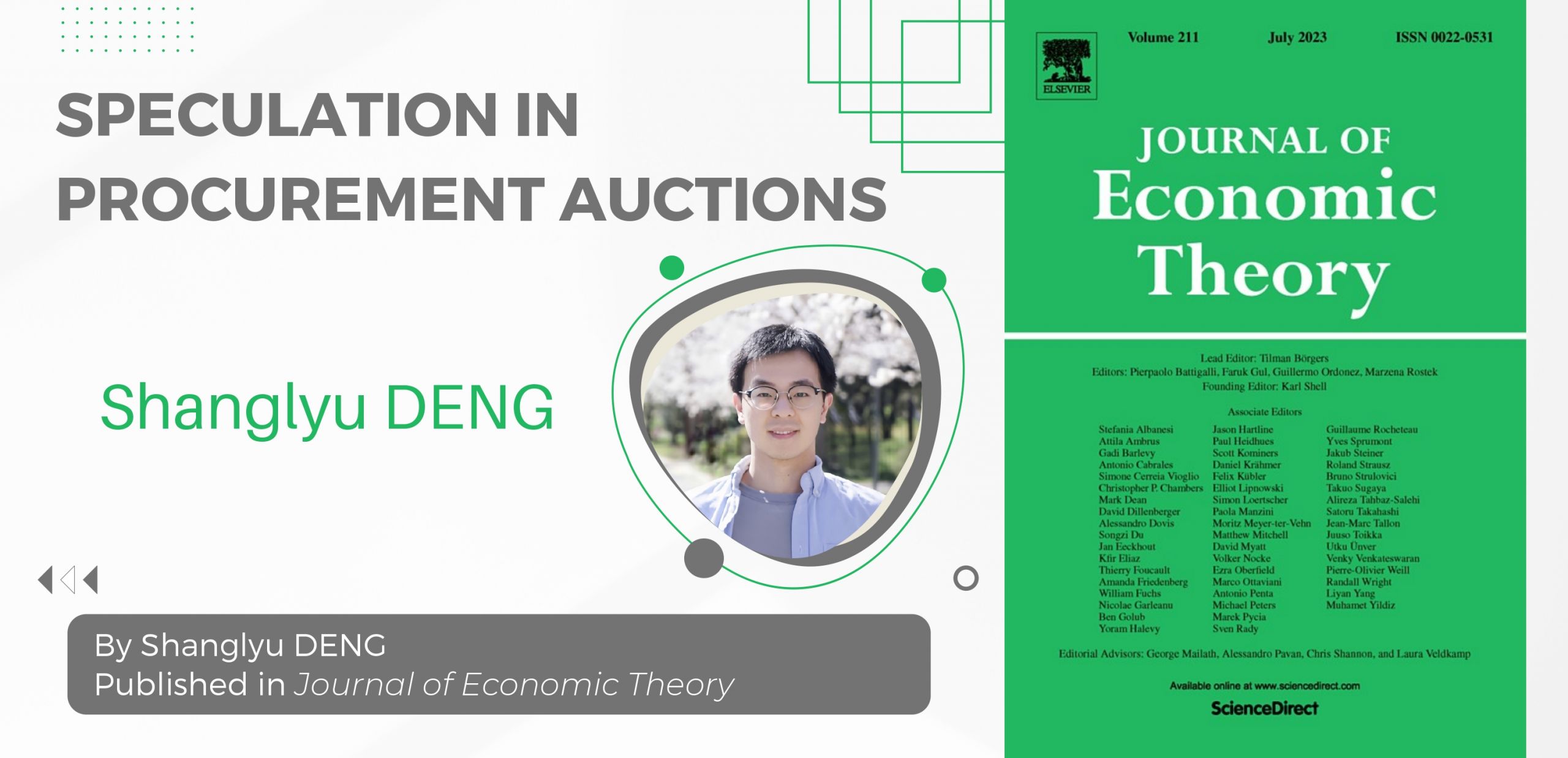
Speculation in Procurement Auctions
By Shanglyu DENG
Published in Journal of Economic Theory
Abstract:
A speculator can take advantage of a procurement auction by acquiring items for sale before the auction. The accumulated market power can then be exercised in the auction and may lead to a large enough gain to cover the acquisition costs. I show that speculation always generates a positive expected profit in second-price auctions but could be unprofitable in first-price auctions. In the case where speculation is profitable in first-price auctions, it is more profitable in second-price auctions. This comparison in profitability is driven by different competition patterns in the two auction mechanisms: in first-price auctions, sellers who refuse to sell to the speculator bid more aggressively than in second-price auctions. In terms of welfare, speculation causes private value destruction and harms efficiency. Sellers benefit from the acquisition offer made by the speculator. Therefore, speculation comes at the expense of the auctioneer.
